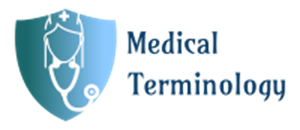In the fast-paced and ever-changing world of healthcare, professionals must constantly update their knowledge and skills to stay relevant and competitive. One crucial area of expertise is medical terminology, the specialized language used by healthcare practitioners to describe the human body, its functions, diseases, and treatments. An online course in medical terminology offers a flexible and comprehensive way to master this vital aspect of healthcare, providing numerous benefits for career advancement and professional growth.

Understanding medical terminology is essential for all healthcare roles, from doctors and nurses to medical coders and administrative staff. An online medical terminology course lays the groundwork for this understanding, ensuring that all professionals can communicate effectively and accurately. These courses typically cover the root words, prefixes, and suffixes that form medical terms, as well as the rules for their combination. This knowledge is crucial for deciphering complex terms and improving overall comprehension of medical language.
For college-age students considering a career in healthcare, an online course in medical terminology can provide a significant advantage. It allows them to familiarize themselves with the language of medicine before entering their chosen field, giving them a head start in their studies and future careers.
Enhancing Communication Skills
Effective communication is a cornerstone of quality healthcare. Miscommunication can lead to errors, which can compromise patient safety and overall care quality. By completing an online medical terminology course, healthcare professionals and aspiring students can significantly reduce the risk of misunderstandings. They gain the ability to read and interpret medical reports, prescriptions, and documentation with precision. This skill is particularly vital in environments where clear and concise communication can directly impact patient outcomes.
For example, a nurse who has completed an online course in medical terminology will be better equipped to understand doctors’ orders, communicate with patients about their conditions, and accurately document patient information. This improved communication can lead to better patient care and fewer medical errors.
Increasing Job Opportunities and Mobility
Proficiency in medical terminology can open doors to a variety of career opportunities within the healthcare sector. For instance, medical coders and billers need to accurately translate patient records into standardized codes used for billing and insurance purposes. Similarly, health information technicians rely on medical terminology to manage patient data effectively. An online course provides the necessary credentials to pursue these roles and demonstrates a commitment to professional development.
For college-age students, this knowledge can make them more attractive candidates for internships, entry-level positions, and even advanced roles in the future. It shows potential employers that they are serious about their career in healthcare and have taken the initiative to acquire essential skills.
Moreover, medical terminology knowledge is transferable across different healthcare settings, from hospitals and clinics to insurance companies and government agencies. This versatility enhances job mobility, allowing professionals to transition between roles or advance to higher positions within their organizations. For students, this means that the skills they acquire through an online course in medical terminology will remain valuable throughout their careers, regardless of the specific path they choose within healthcare.
Facilitating Lifelong Learning
The healthcare field is characterized by constant advancements in technology, treatments, and best practices. A solid grasp of medical terminology forms the basis for understanding and integrating new developments into practice. Online courses are particularly beneficial because they allow professionals and students to learn at their own pace, accommodating busy schedules and diverse learning styles. The flexibility of online learning ensures that even those with demanding jobs or full course loads can continue their education without sacrificing their professional or academic responsibilities.
For college-age students, an online course in medical terminology can be an excellent supplement to their regular studies. It allows them to gain valuable knowledge and skills without interfering with their primary coursework. This additional learning can give them an edge in their classes and prepare them for future clinical experiences or internships.
Supporting Specialized Career Paths
An online medical terminology course is invaluable for those pursuing specialized healthcare careers. For example, aspiring medical transcriptionists must accurately transcribe physicians’ notes and other medical documents. This task requires a deep understanding of medical terms to ensure that the transcriptions are precise and reliable. Similarly, professionals in medical research or pharmaceuticals benefit from a thorough understanding of terminology to interpret study results, draft research papers, and communicate findings.
For college students interested in these specialized fields, early exposure to medical terminology through an online course can help them determine if these career paths align with their interests and aptitudes. It can also give them a competitive advantage when applying for specialized programs or positions in the future.
Boosting Confidence and Professionalism
Mastery of medical terminology not only enhances practical skills but also boosts confidence. Healthcare professionals and students who are well-versed in the language of medicine are more likely to engage confidently with colleagues, patients, and other stakeholders. This professionalism can improve job performance, foster trust in professional relationships, and enhance overall career satisfaction.
For college-age students, this increased confidence can be particularly beneficial as they navigate their early career experiences. Whether participating in clinical rotations, internships, or entry-level positions, a strong foundation in medical terminology can help them feel more prepared and capable in their roles.
Convenience and Cost-Effectiveness
One of the major advantages of an online course in medical terminology is its convenience and cost-effectiveness. Traditional in-person courses may require students to commute to a physical location at specific times, which can be challenging for those with busy schedules or limited transportation options. Online courses eliminate these barriers, allowing students to access course materials and complete assignments from anywhere with an Internet connection.
Additionally, online courses often cost less than their in-person counterparts, making them an attractive option for budget-conscious college students. The ability to learn at one’s own pace also means that students can take the time they need to fully grasp concepts without feeling rushed, potentially leading to better retention of the material.
Enhancing Healthcare Careers Through Online Medical Terminology Courses

Conclusion
In conclusion, an online medical terminology course is a powerful tool for advancing a healthcare career and preparing for future success in the field. It equips professionals and students with essential knowledge, enhances communication skills, increases job opportunities, supports lifelong learning, and boosts confidence. For college-age students considering a career in healthcare, investing in such a course can provide a strong foundation for their studies and future professional endeavors. By mastering medical terminology through an online course, individuals can position themselves at the forefront of their field, ready to provide the highest quality of care in a complex and dynamic industry.
An Online Medical Terminology Course
Here is an online course worth checking out. It is offered by the Medical Terminology Academy and is based on the popular textbook Basic Medical Language (7th Edition) published by Elsevier. Access to Evolve is included with the purchase of the text. Elsevier has a proud publishing history built on valued partnerships with authors to bring quality products to professionals and institutions worldwide.
For over 25 years, the textbook Basic Medical Language has been used to teach medical terminology in the classroom.
Now, the authors are offering a course free with the purchase of the textbook.
Click here to learn more about this online medical terminology course and textbook.
